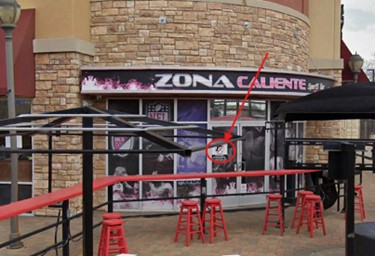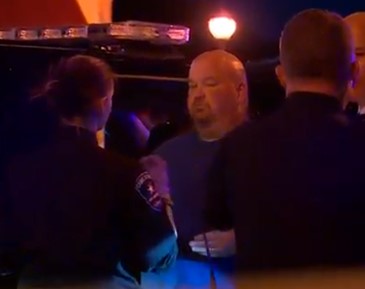
On May 3rd, 2017, in Arlington, Texas, a tragic and frightening incident occurred at Zona Caliente Sports Bar. James Jones entered the establishment and began yelling incoherently. For reasons unknown, Jones shot and killed Cesar Perez, the 37-year-old restaurant manager who had attempted to calm him down. Amidst the chaos, a Texas License to Carry (LTC) holder drew his firearm and engaged the shooter. Struck by the LTC holder’s bullet, Jones began firing towards the front door, where patrons were trying to flee. The LTC holder then fatally shot Jones, potentially saving numerous lives. Police later discovered that Jones was carrying two loaded guns and two knives.
The Importance of Obtaining a License to Carry (LTC) in Texas
This harrowing event underscores the critical role that responsibly armed citizens can play in public safety. The presence of an LTC holder at Zona Caliente that day likely prevented further loss of life. So, do you still need an LTC in Texas? There are several compelling reasons to answer yes that directly apply to this event.
Comprehensive Training and Education
To obtain an LTC in Texas, individuals must undergo training that covers a variety of important topics, including firearm safety, proper storage practices, and the legal aspects of using deadly force. Included in this is a comprehensive dive into the places where an LTC holder may carry their firearm. This training ensures that LTC holders are well-informed and responsible gun owners. They are better equipped to handle firearms safely and make informed decisions in high-stress situations.

As seen here, the establishment posted a “no firearms” sign on their front doors. However, the LTC holder knew the law and that this sign did not prevent him from entering the establishment carrying his firearm. Thus, his LTC license and legal training enabled him to save lives that day.
This is the difference between having an LTC and normal Open-Carry in Texas.
Enhanced Legal Protections
One of the primary benefits of having an LTC is the enhanced legal protections it offers. Texas law, specifically Section 46.035 of the Texas Penal Code, provides LTC holders with the legal right to carry handguns in many places where unlicensed carry is prohibited. This includes private property and businesses, unless the property owner has posted a sign prohibiting firearms.
According to Texas Penal Code Section 46.035(b), it is an offense for a person to carry a handgun on the premises of a business that derives 51% or more of its income from the sale of alcoholic beverages for on-premises consumption, but this restriction does not apply to LTC holders in many other types of businesses. This legal provision enables LTC holders to be armed in a variety of settings, enhancing their ability to protect themselves and others.
A person simply open-carrying, may think twice when entering "Zona Caliente Sports Bar" because they heard somewhere you cannot carry a firearm in a bar. However, the Hero of our story knows the law, and without that 51% sign, he is allowed to carry is firearm into the establishment and be ready to defend life.
Peace of Mind and Preparedness
Possessing an LTC provides peace of mind. It allows individuals to be prepared for unexpected and potentially dangerous situations. The knowledge that one has the legal right and ability to defend oneself and others can be empowering. This sense of preparedness can also translate to a more confident and assertive demeanor, which can be a deterrent to potential criminals.
Our Hero? Who knows! This is exactly why you still need an LTC in Texas?
We'll never know, and that is by design. This man at the scene may well be our hero LTC holder here, but Texas law protects the LTC Holder's identity as confidential. No FOIA requests for that information can be granted, so without the person's written consent, the public can not know their name.

Community Safety and Responsibility
LTC holders often play a crucial role in enhancing community safety. As demonstrated in the Zona Caliente incident, responsibly armed citizens can intervene in violent situations, potentially saving lives. While law enforcement officers do their best to protect the public, they cannot be everywhere at once. Responsible LTC holders can act as a supplementary layer of defense, helping to bridge the gap until law enforcement arrives.
Specific Legal Provisions for LTC Holders
Texas law delineates specific places where LTC holders can carry their firearms, giving them broader legal latitude compared to unlicensed individuals. Under Texas Penal Code Section 30.06 and Section 30.07, property owners can post signs to prohibit concealed and open carry, respectively. However, in the absence of these signs, LTC holders can legally carry their firearms on private property and in businesses.
Moreover, Texas Penal Code Section 46.15(b)(6) exempts LTC holders from the prohibition of carrying firearms in certain locations, provided they follow the specific legal guidelines. This includes carrying in establishments that sell alcohol, provided the establishment does not derive more than 51% of its income from on-premises alcohol sales.
Do you still need an LTC in Texas? Compelling Argument For Obtaining a Texas LTC
Given the legal advantages, increased preparedness, and the ability to protect oneself and others, obtaining an LTC in Texas is a prudent decision for responsible adults. The benefits extend beyond personal safety to enhancing community security. The training and education required for an LTC foster a culture of responsible gun ownership, ensuring that those who carry are knowledgeable about the law and proficient in firearm safety.
The incident at Zona Caliente serves as a powerful reminder of the potential impact of responsibly armed citizens. An LTC holder’s actions that day likely prevented further loss of life, demonstrating the critical importance of lawful and trained individuals in crisis situations.
In a world where safety and preparedness are paramount, obtaining a License to Carry in Texas offers numerous benefits. Many would ask "Do you still need an LTC in Texas?" The resounding answer is yes. It provides enhanced legal protections, streamlined firearm purchases, and essential training. More importantly, it empowers individuals to defend themselves and others, potentially saving lives as seen in the Zona Caliente incident. The legal framework in Texas supports and recognizes the importance of responsible armed citizens, making an LTC not just a privilege, but a vital component of personal and community safety.